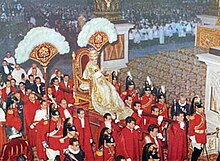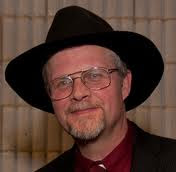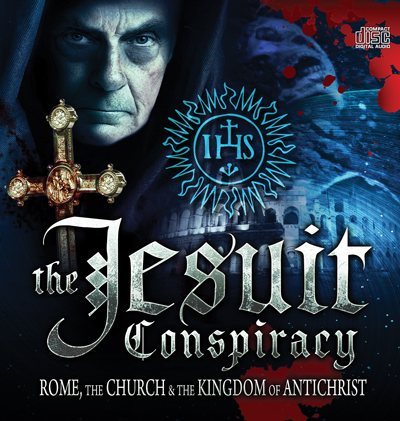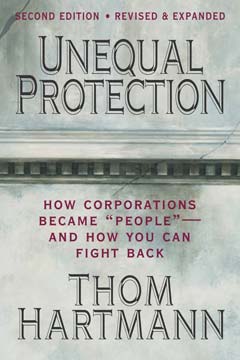This is the text of a speech I gave at the University of Louisville on Thursday. I had a number of students gather round for discussion. I had only two hecklers. Everyone else either walked on by or had a cordial conversation with me. I think they are grateful for a substantial, mature dialogue on important issues rather than Kerrigan Skelly’s (Professional Pinpoint Douchebag) tirades where he pretends to be free from sin and know all the sins of everyone walking by him as he condemns them all to hell from his imperious, and lofty cuff.
The Failure of Secular Philosophy
Introduction to Motive
In recent years we have seen the Protestant Religion loose influence due to the rise in Atheism and Secularism in general through the influences of state education and media. I believe these influences have not dealt honestly and thus it is my duty to challenge this movement which is driving people away from Scripture and into the hands of political predators. This movement will no doubt play right into the hands of the Roman Hierarchy who not coincidently laid the foundations for secularism.
- Materialism was popularized by the atomism of Descartes, Galileo and Voltaire-all Jesuit trained men.
- Communism was created by the Roman Catholic statesmen Sir Thomas More and perfected by the Jesuits in their Reductions in Paraguay. Abbé Sieyès was most responsible for the French Revolution and he was a Jesuit. Marx was trained by Jesuits in Trier, Germany. The Communists did little but destroyed some of the most powerful enemies of the Vatican with the Bolshevik Revolution.
- Salamancan Jesuits like Molina and Juan de Mariana laid the foundations for Libertarianism and the Austrian School of Economics.
- According to Masonic historian, Johann Bode, the Jesuits created the Masonic Lodge in England to regain the Stuart throne. Freemasonry has now universally infiltrated the large Protestant denominations and turned them to Liberalism.
- The famous Freemason Erasmus Darwin was the primary influence on his grandson’s Darwinism and the transitional fossil hoaxes were created by the famous Jesuit Teilhard de Chardin and men associated with him.
- The big bang theory was created by a Jesuit named Georges Lemaître.
- Our Gregorian Calendar was even invented by a Jesuit named Christopher Clavius.
- Our pandering after international organizations like the United Nations is nothing short of the Vatican’s Ultramontanism that they have been claiming divine right to for centuries.
- The banning of the Bible in public schools is nothing short of the Vatican’s Index of Forbidden Books and their incessant ambition to keep the Bible out of the hands of the common people. This is exactly what Thomas More burned people alive in England for in the 16th century.
You can think you are a free thinker all you like, but the Secular establishment is Roman Catholic from top to bottom; thus creating any and all philosophies that divert people from the teaching of scripture and the Patriarchal culture of the Protestant Reformation. I am not appealing to you simply as a person but a member of a society, a body politic. This Roman influence that we have over us, is halting human progress. Not only are we feeling the affects of this now, we will feel them more in the future. Do not allow the Roman agenda to succeed here. Do not be deceived by atheism. It was created to replace faith in the Bible and thus the Protestant Reformation. Even if you are an atheist the success of the Protestant Reformation which has been exterminated in my state since the time of our Communist Revolution and Yankee invasion, is in your interests. We do not halt human progress. We support freedom of the press. The modern period begins with the Treaty of Westphalia in 1648. That is no accident.
And just in case you are not yet totally convinced that Rome rules your government in the background you need to read this article by Archbishop Quigley:
The points above show the control of the Jesuits over our education, but also, the president of the University of Louisville used to teach at a Jesuit college in Chicago. Also, the superintendent of all Jefferson Country Public Schools was trained by Jesuits at Marquette-Not Jews, white Roman Catholics.
Introduction to the Failure of Secularism
Bertrand Russell said in Portraits from Memory, 1956,
“I wanted certainty in the kind of way in which people want religious faith. I thought that certainty is more likely to be found in mathematics than elsewhere. But I discovered that many mathematical demonstrations, which my teachers wanted me to accept, were full of fallacies … I was continually reminded of the fable about the elephant and the tortoise. Having constructed an elephant upon which the mathematical world could rest, I found the elephant tottering, and proceeded to construct a tortoise to keep the elephant from falling. But the tortoise was no more secure than the elephant, and after some twenty years of arduous toil, I came to the conclusion that there was nothing more that I could do in the way of making mathematical knowledge indubitable.” (pg. 229-230)
Morris Kline says in his Mathematics: The Loss of Certainty,
“The loss of truth, the constantly increasing complexity of mathematics and science, and the uncertainty about which approach to mathematics is secure have caused most mathematicians to abandon science…The crises and conflicts over what sound mathematics is have also discouraged the application of mathematical methodology to many areas of our culture such as philosophy, political science, ethics, and aesthetics. The hope of finding objective, infallible laws and standards has faded. The Age of Reason is gone.” (pg. 7)
David Hume had argued that there was no objective knowledge and that all knowledge was simply subjective opinion. Kant tried to answer this by appealing to his apriori forms that through these forms men could obtain objective truth. The problem with this is that it put the Scientific laws in man’s mind and not in the physical world. Thus, there are no natural laws.
Summary arguments:
1. Empiricism cannot define sensation and show how sensation produces perception and abstract ideas.
2. Empiricism cannot identify individual numeric natures.
3. Empiricism falls prey to fallacy of induction, that is Asserting the Consequent.
4. Pursuant to #2, Empiricism cannot show how mathematics and numbers represents physical reality and thus fails to justify any Scientific law.
Sensation
The Secular Philosophy is founded on sensation and experience. Perception is inferred from sensation and passing from perception, remaining memory images, through abstraction, produce abstract ideas. A sentence only has meaning as it is verified by sensory experience. And finally, words are representations of chemical reactions. Love, human rights and justice are not innate forms in a soul but basic chemistry. It can all be experimented on in a test-tube.
First, what is a sensation? No one knows.
Second, if perception is an inference from sensation how does one determine the difference between a valid and an invalid inference? No one knows. Moreover, sensation never gives, perception takes. That is, perception is chosen not given. Therefore, it is subjective not objective.
Third, it is an assumption that abstract ideas are taken from images because not all men claim to have these. The British Scientist Francis Galton denied that he had any images. I only have a couple types of images, what I have seen and heard. I cannot call up things I have touched, smelled or tasted.
Fourth, how can a sensation of a particular thing produce a universal concept or an abstract idea? A sensation of a dog gives me an image of Rover or Fito, not a genus, like Canine, or Vertebrate.
Fifthly, when confronted with the many problems Empiricists have with language and concepts, they cannot appeal to colloquial use because most people do not think that Love and Human Rights and Justice are chemical reactions. There is something soul-ish, something divine and universal, because well, atheism just is not a human philosophy.
Lastly, Empiricists admit themselves that animals have much more keen sensations than humans do yet they have no mathematics, no grammar and no dictionaries. This is very problematic for the Empiricist’s mechanistic worldview. This is why Alfred Russell Wallace, Darwin’s Mentor, abandoned Natural Selection.
Identity of Substances
Beginning with the Pre-Soctratic period:
In order to have an object of knowledge one must perceive in a subject something changeless through qualitative change. Can we find such a subject?
The Pre-Socratic period begins with the Corporeal Monists and Thales the Milesian. He posited a single substance to the Universe, thus all things are one substance. This substance is eternal, emanates infinitely, history is thus cyclical not linear, motion is spontaneous, and change is essential. When one eats bread, bread turns to your fingernails. Bread is fingernails. When it rains, the water feeds the trees and the trees feed the fire, thus water is fire. Thus opposites are juxtaposed in a single substance.
Heraclitus comes along and posits his flux, and his law that does not change through change, is the Logos.
The problem surfaces, how does an incorporeal law arise from something corporeal? No one knows.
Parmenides comes along and objects that corporeal monism presents contradictions. Opposites cannot be the same substance, change is impossible to something eternal, origination is ridiculous and eternality and immutability rules out motion.
Corporeal Pluralism was then needed.
Empedocles posited four substances: Earth, Air, Fire and Water. These qualitative differences were eternal and thus unchangeable as prerequisites for corporeality and thus motion was still a problem. Moreover, if their qualities distinguished them from each other then all qualities, such as hair or fingernails must distinguish numeric substances.
Thus an infinite number of substances was required.
This gives rise to Democritus’ Atomism. These atoms were eternal, changeless, and immutable and therefore indivisible. Motion was an axiom and thus also space. Zeno of Elea refuted this with his Paradoxes and then it was refuted again with the splitting of the atom in the 1930s with Enrico Fermi and Einstein.
Then comes Aristotle.
Mary Louise Gill refuted all attempts made to provide a theory of individuation in Aristotle (Making Logic [The Law of Contradiction] impossible; thus making language impossible.) in her article: “Individuals and Individuation in Aristotle” (Unity, Identity, and Explanation in Aristotle’s Metaphysics (Oxford: Clarendon Press, 1994).
i. If we take matter to be the principle of individuation how do we individuate one unit of matter from another? Some will say, “the spatio-temporal location”. Yet this is circular. How do we individuate spatio-temporal locations? By the matter contained in that space. So the matter is individuated by the space and the space by the matter.
ii. Some have tried to use matter and quantity as the principle of individuation. Gill replies, “this criterion will not work for identical twins, two drafts of water from the same fountain, or Max Black’s pair of spheres, which have qualitatively identical matter.” (pg. 62)
iii. Another attempt has made material continuity the principle of individuation. Gill speaks to this issue on page 66,
“If two statues of Socrates are made out of the same bronze at different times, the statues are distinct because the time during which the matter constitutes the two is interrupted. In the interval the bronze survives the destruction of the first statue and the generation of the second…If this is Aristotle’s answer to the puzzle about material migration, then continuity of matter is not su
fficient even to account for weak individuation. Continuity of time is also required.”
iv. Some have tried to use form as the principle of individuation. Gill replies,
“But it is not very good evidence…Some defenders of the thesis will respond that the forms of Callias and Socrates differ because they are realized in different parcels of matter. But then form is not after all the principle of individuation, since the matter, rather than the form, differentiates the particulars.” (pg. 68-69)
Induction
Bertrand Russell said,
“All inductive arguments in the last resort reduce themselves to the following form: ‘If this is true, that is true: now that is true, therefore this is true.” This argument is of course, formally fallacious. Suppose I were to say: “If bread is a stone and stones are nourishing, then this bread will nourish me; now this bread does nourish me; therefore it is a stone, and stones are nourishing.’ If I were to advance such an argument, I should certainly be thought foolish, yet it would not be fundamentally different from the argument upon which all scientific laws are based.” (The Scientific Outlook by Bertrand Russell, page, 51)
Induction, as it functions in logic and helps develop scientific laws, refers to a process of observing a particular object or event and drawing a universal conclusion that has yet to be observed. All induction is a formal fallacy of Asserting the Consequent. As Bishop Berkley put it,
“In every other science men prove their conclusions by their principles, and not their principles by their conclusions.”
In common speech the problem goes something like this: When it is raining outside the streets will be wet; The streets are wet, therefore it is raining outside. This is a fallacy. The streets could be wet for an infinite number of reasons.
A concrete example:
If Einstein’s Theory of Relativity is true, light will bend as it passes large material objects.
Light bends as it passes the Sun.
Therefore, Einstein’s theory of relativity is true.
This is a fallacy. There are an infinite possible reasons why these theories work from time to time. Your probability therefore is represented by the fraction one/infinity which equals zero.
Just because something works does not mean that it is true. Morris Kline pointed out,
“the most significant fact about non-Euclidean geometry is that it can be used to describe the properties of physical space as accurately as Euclidean geometry does. Euclidean geometry is not the necessary geometry of physical space; its physical truth cannot be guaranteed on any a priori grounds.” (Mathematics: The Loss of Certainty [New York: Oxford University Press, 1980, pg. 84)
Kline also pointed out that Einstein used Non-Euclidean Geometry to create his theory of relativity. Thus, just because something works, does not make it true. Operation is not demonstration.
Numbers and Mathematics
Albert Einstein said in (Geometry and Experience, Address to the Prussian Academy of Sciences in Berlin on January 27th, 1921)
“as far as the laws of mathematics refer to reality, they are not certain; and as far as they are certain, they do not refer to reality.”
Kline says,
“Thus one cannot speak of arithmetic as a body of truths that necessarily apply to physical phenomena. Of course, since algebra and analysis are extensions of arithmetic, these branches, too, are not bodies of truth….It seemed as though God had sought to confound them with several geometries and several algebras just as he had confounded the people of Babel with different languages…Nature’s laws are man’s creation. (pg. 95-98)
Yet Kline describes the huge problem with these admissions,
“As we shall see, the most well developed physical theories are entirely mathematical [pg. 7]…Descartes was explicit in his Principles that the essence of science was mathematics.” [pg. 43]
Pythagoras, later Pythagoreans and Euclid affirmed the Monad, the ultimate principle without distinction and source of numbers. Euclid, defined the Monad as “that according to which every thing that exists is called one.” (Thomas Taylor, Theoretic Arithmetic, 4) Numbers were extension from the Monad. This is all ad hoc as Plotinus admitted later in his Enneads. How does distinction emanate from a monad? Plonitus admitted he had no answer. This is therefore ad hoc. I don’t think that modern Secularists understand that their system was originally designed as a part of Pantheistic religion. Do modern Secularists believe in an eternal Monad?
We are met with many contradictions between Mathematics and the physical world as Kline catalogs:
- One raindrop plus one raindrop does not equal two raindrops.
- One volume of Nitrogen plus three volumes of Hydrogen does not equal four volumes but two volumes of ammonia.
- One cup of 40 degree water plus one cup of 50 degree water does not equal 2 cups of 90 degree water.
- A quart of gin plus a quart of vermouth does not equal two quarts.
These contradictions were the essence of Zeno’s Paradoxes.
Some may object that Newton worked all these things out in his Calculus.
Kline complained that Newton had proved his calculus by physical results. Kline provides a fascinating historical event on pages 149-151. The Mathematics department of the Berlin Academy of Sciences held a contest in 1784 (Almost 60 years after Newton’s death) for the contestants to provide a solution to the problem of the infinite in mathematics. In all, 23 papers were submitted and all were found to be incompetent failures.
A few months ago I had a conversation with the head of the Mathematics department of a certain University here in Louisville. I asked him how we know that the mathematics and numbers we write down on paper represents physical reality. His exact words were, “Drake, that is a question which cannot be answered.” Moreover, he told me that just that week he had met with the heads of other departments and they all agreed that there is no such thing as objective truth and that all knowledge is subjective. Therefore, the information here in this speech is current as of late 2012.







-1-.jpg)


























Excellent speech.
One day you should make mp3s of this stuff. Awesome job!